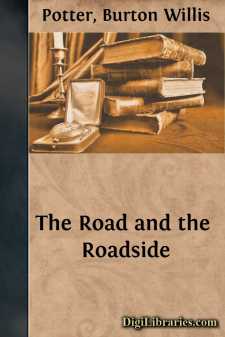Categories
- Antiques & Collectibles 13
- Architecture 36
- Art 48
- Bibles 22
- Biography & Autobiography 815
- Body, Mind & Spirit 144
- Business & Economics 28
- Children's Books 18
- Children's Fiction 14
- Computers 4
- Cooking 94
- Crafts & Hobbies 4
- Drama 346
- Education 58
- Family & Relationships 59
- Fiction 11829
- Games 19
- Gardening 17
- Health & Fitness 34
- History 1378
- House & Home 1
- Humor 147
- Juvenile Fiction 1873
- Juvenile Nonfiction 202
- Language Arts & Disciplines 89
- Law 16
- Literary Collections 686
- Literary Criticism 179
- Mathematics 13
- Medical 41
- Music 40
- Nature 179
- Non-Classifiable 1768
- Performing Arts 7
- Periodicals 1453
- Philosophy 65
- Photography 2
- Poetry 896
- Political Science 203
- Psychology 44
- Reference 154
- Religion 515
- Science 126
- Self-Help 85
- Social Science 82
- Sports & Recreation 34
- Study Aids 3
- Technology & Engineering 59
- Transportation 23
- Travel 463
- True Crime 29
Our website is made possible by displaying online advertisements to our visitors.
Please consider supporting us by disabling your ad blocker.
The Road and the Roadside
Categories:
Description:
Excerpt
CHAPTER I.
HISTORY, IMPORTANCE, AND SIGNIFICANCE OF ROADS.
The development of the means of communication between different communities, peoples, and races has ever been coexistent with the progress of civilization. Lord Macaulay declares that of all inventions, the alphabet and printing-press alone excepted, those inventions which abridge distance have done most for the civilization of our species. Every improvement of the means of locomotion benefits mankind morally and intellectually as well as materially.
"The road," Bushnell says, "is that physical sign or symbol by which you will best understand any age or people. If they have no roads, they are savages; for the road is the creation of man and a type of civilized society. If you wish to know whether society is stagnant, learning scholastic, religion a dead formality, you may learn something by going into universities and libraries, something also by the work that is doing on cathedrals and churches or in them, but quite as much by looking at the roads; for if there is any motion in society, the road, which is the symbol of motion, will indicate the fact."
As roads are the symbols of progress, so, according to the philosophy of Carlyle, they should only be used by working and progressive people, as he asserts that the public highways ought not to be occupied by people demonstrating that motion is impossible. Hence, when we trace back the history of the race to the dawn of civilization, we find that the first sponsors of art and science, commerce and manufacture, education and government, were the builders and supporters of public highways.
The two most ancient civilizations situated in the valleys of the Nile and the Euphrates were connected by a commercial and military highway leading from Babylon to Memphis, along which passed the war chariots and the armies of the great chieftains and military kings of ancient days, and over which were carried the gems, the gold, the spices, the ivories, the textile fabrics, and all the curious and unrivalled productions of the luxurious Orient. On the line of this roadway arose Nineveh, Palmyra, Damascus, Tyre, Antioch, and other great commercial cities.
On the southern shores of the Mediterranean the Carthaginians built up and consolidated an empire so prominent in military and naval achievements and in the arts and industries of civilized life, that for four hundred years it was able to hold its own against the preponderance of Greece and Rome; and as might have been expected, they were systematic and scientific road-makers from whom the Romans learned the art of road-building.
The Romans were apt scholars, and possessed a wonderful capacity not only to utilize prior inventions but also to develop them. They were beyond question the most successful and masterful road-builders in the ancient world; and the perfection of their highways was one of the most potent causes of their superiority in progress and civilization. When they conquered a province they not only annexed it politically, by imposing on its people their laws and system of government, but they annexed it socially and commercially, by the construction of good roads from its chief places to one or more of the great roadways which brought them in easy and direct communication with the metropolis of the Roman world....


